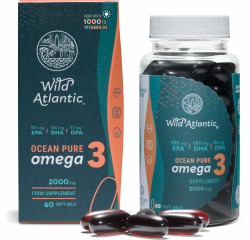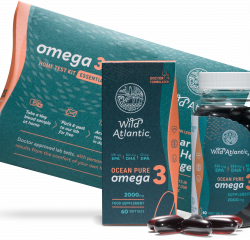Can Omega-3 Fatty Acids Lower Blood Pressure?
High blood pressure, or hypertension, is a common health issue that increases the risk of heart disease, stroke, and other serious conditions. Many dietary and lifestyle changes can help manage blood pressure, and omega-3 fatty acids have gained attention for their potential benefits in this area. This article explores the relationship between omega-3 fatty acids and blood pressure, examining whether incorporating these essential fats into your diet can contribute to healthier blood pressure levels.
Understanding Blood Pressure
Blood pressure measures the force of blood pushing against the walls of your arteries as your heart pumps blood. It is recorded as two numbers: systolic pressure (the pressure when your heart beats) over diastolic pressure (the pressure when your heart rests between beats). Normal blood pressure is typically around 120/80 mm Hg. High blood pressure is defined as having consistently higher readings, often exceeding 140/90 mm Hg.
Omega-3 Fatty Acids: An Overview
Omega-3 fatty acids are polyunsaturated fats essential for various bodily functions. The three main types are:
- Eicosapentaenoic acid (EPA): Primarily found in fish and fish oil.
- Docosahexaenoic acid (DHA): Also found in fish and fish oil, crucial for brain health.
- Alpha-linolenic acid (ALA): Found in plant oils, such as flaxseed, chia seeds, and walnuts, and can be converted into EPA and DHA in the body, although the conversion rate is low.
Mechanisms of Omega-3 in Blood Pressure Regulation
Omega-3 fatty acids may help lower blood pressure through several mechanisms:
- Improved Endothelial Function: Omega-3s enhance the function of the endothelium, the lining of blood vessels, promoting vasodilation and reducing blood pressure.
- Reduction of Inflammation: Chronic inflammation is linked to hypertension. Omega-3s have anti-inflammatory properties that help lower inflammation levels and, consequently, blood pressure.
- Decreased Blood Vessel Stiffness: Omega-3s can make blood vessels more flexible, reducing resistance to blood flow and lowering blood pressure.
- Lowering Triglycerides: High triglyceride levels can contribute to hypertension. Omega-3s are known to reduce triglyceride levels in the blood, which can help manage blood pressure.
Research Evidence on Omega-3 and Blood Pressure
Several studies have investigated the effects of omega-3 fatty acids on blood pressure, with many showing positive results:
| Study | Findings |
|---|---|
| Harris et al. (2020) | Omega-3 supplementation significantly reduced both systolic and diastolic blood pressure in adults with hypertension. |
| Mozaffarian et al. (2016) | Higher dietary intake of omega-3 fatty acids was associated with lower blood pressure levels in a large cohort study. |
| Georgiopoulos et al. (2018) | Omega-3 fatty acids improved endothelial function and reduced blood pressure in patients with metabolic syndrome. |
Sources of Omega-3 Fatty Acids
To reap the blood pressure-lowering benefits of omega-3 fatty acids, include these omega-3-rich foods in your diet:
- Fatty fish such as salmon, mackerel, and sardines
- Flaxseeds and flaxseed oil
- Chia seeds
- Walnuts
- Hemp seeds
- Algal oil (a plant-based source of DHA)
Conclusion
Incorporating omega-3 fatty acids into your diet can help lower blood pressure and improve cardiovascular health. Whether through dietary sources or supplements, ensuring an adequate intake of these essential fats is crucial for managing hypertension and promoting overall well-being. For more information on the benefits of omega-3, visit our [blog on the benefits of omega-3 for kids and teens](https://www.wildatlantichealth.com/benefits-of-omega-3-for-kids-and-teens/).
References
- Harris, W.S., et al. (2020). Omega-3 Fatty Acids and Blood Pressure: A Meta-Analysis. American Journal of Hypertension, 33(6), 567-574.
- Mozaffarian, D., et al. (2016). Fish Consumption, Omega-3 Fatty Acids, and Blood Pressure: The CARDIA Study. Journal of Hypertension, 34(8), 1516-1523.
- Georgiopoulos, G., et al. (2018). Omega-3 Fatty Acids, Endothelial Function, and Hypertension: A Clinical Study. Hypertension Research, 41(10), 846-853.





























